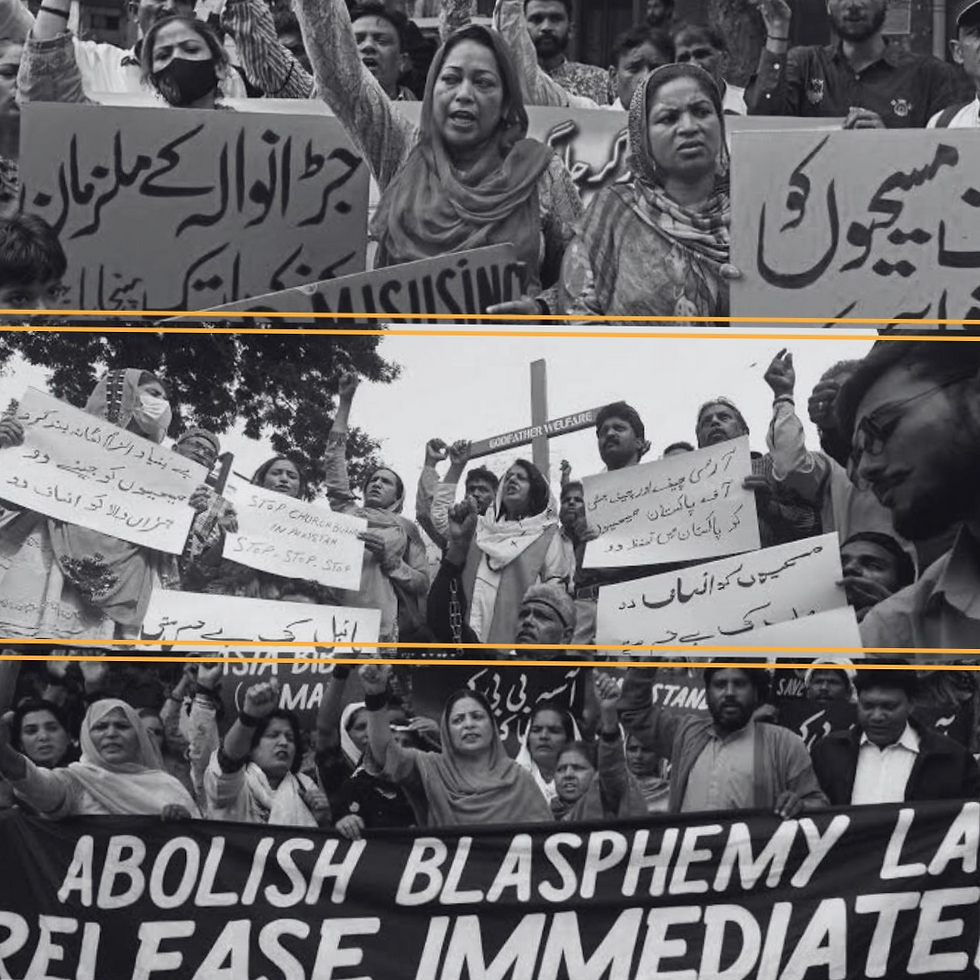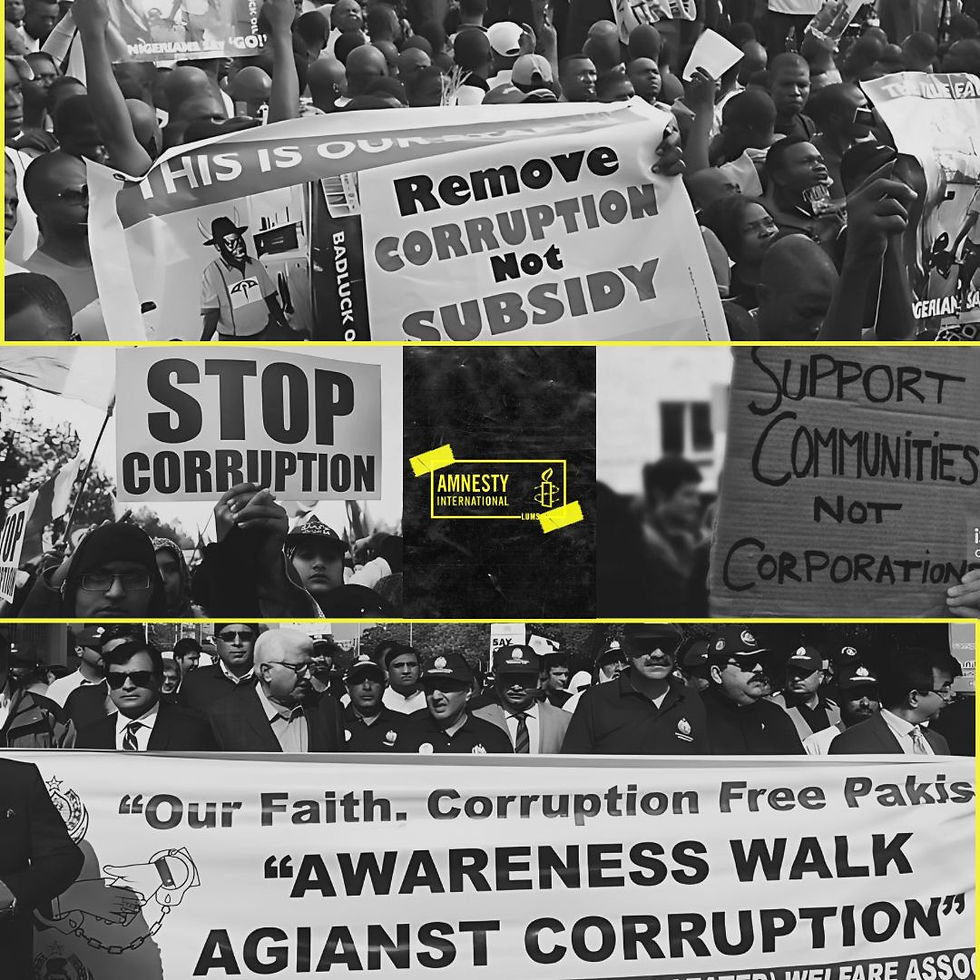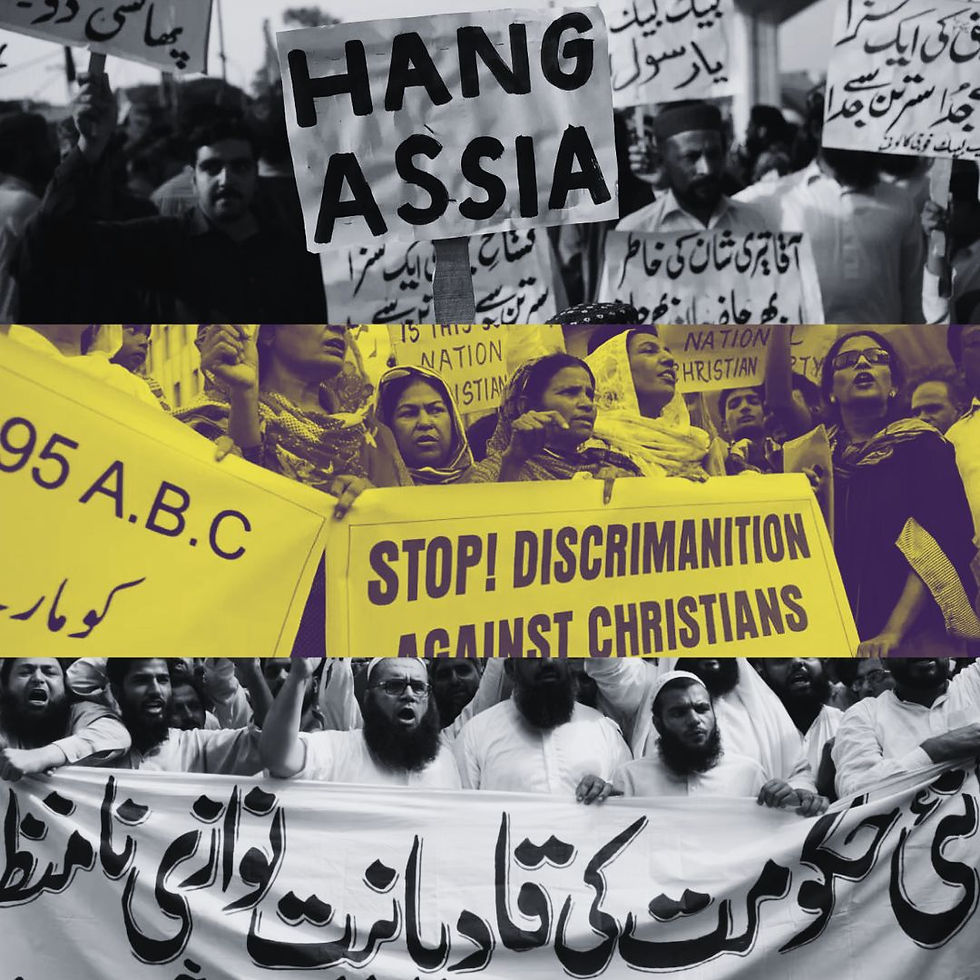Blasphemy Laws in Pakistan: A Double-Edged Sword
- Zawar Hussain
- Aug 17, 2024
- 2 min read
By Zawar Hussain

Blasphemy laws in Pakistan have long been a subject of intense debate, both domestically and internationally. These laws, embedded within Pakistan’s legal framework, are intended to protect religious sentiments. However, their application has often led to severe human rights violations, limiting freedom of expression and contributing to a climate of fear and intolerance.
Historical Background and Legal Clauses
The roots of blasphemy laws in Pakistan can be traced back to the colonial era, but their current form largely stems from amendments made during the 1980s under General Zia-ul-Haq’s regime. Section 295-C of the Pakistan Penal Code, introduced in 1986, prescribes the death penalty or life imprisonment for anyone who “by words, either spoken or written, or by visible representation or by any imputation, innuendo, or insinuation, directly or indirectly, defiles the sacred name of the Holy Prophet Muhammad (peace be upon him).” This section was added as part of a broader Islamization process to appease religious factions and reinforce the state’s Islamic identity. A study in the Modern Journal of Global Terrorism (2023) indicates that from 1987 to 2020, over 1,800 cases of blasphemy were reported, with more than 70% of the accused being from religious minorities, highlighting the discriminatory application of these laws.
Impact on Society and Human Rights
Blasphemy laws have been used to justify violence by both the state and non-state actors. A 2020 report by the Human Rights Commission of Pakistan revealed that between 1990 and 2020, at least 77 people accused of blasphemy were murdered before their trials could conclude, often by vigilante mobs.
The misuse of blasphemy laws extends beyond physical violence. The Prevention of Electronic Crimes Act (PECA) has further intensified the situation by enabling the suppression of online dissent. A report by Amnesty International (2022) noted that digital platforms have seen an alarming rise in blasphemy accusations, with nearly 30% of cases involving social media posts. This has led to widespread self-censorship among journalists and activists.
Documentaries, High-Profile Cases, and Public Perception
Documentaries such as “Pakistan’s Blasphemy Laws” highlight the severe consequences of these laws. The case of Salman Taseer, assassinated in 2011 for speaking out against the misuse of blasphemy laws, remains a stark example. Many hailed his assassin as a hero, illustrating the deep-rooted support for these laws within certain segments of society.
Legal Reforms and International Pressure
Despite the dire situation, there have been calls for legal reforms. Human rights organizations, including Amnesty International, have urged the Pakistani government to amend these laws. The international community has also pressured Pakistan to align its legal practices with global human rights standards. However, efforts at reform have been met with strong resistance from religious groups, who view any changes as an attack on Islam. The government has made some strides, such as requiring senior police officers to investigate blasphemy charges before cases proceed. Nevertheless, these measures have had limited success in curbing intolerance and violence.
Conclusion
Blasphemy laws in Pakistan remain a contentious aspect of the country’s legal system. While intended to protect religious harmony, they have often done the opposite, leading to severe human rights violations and perpetuating fear and violence. Comprehensive legal reforms and efforts to foster a more tolerant society are essential to address these challenges.





Comments